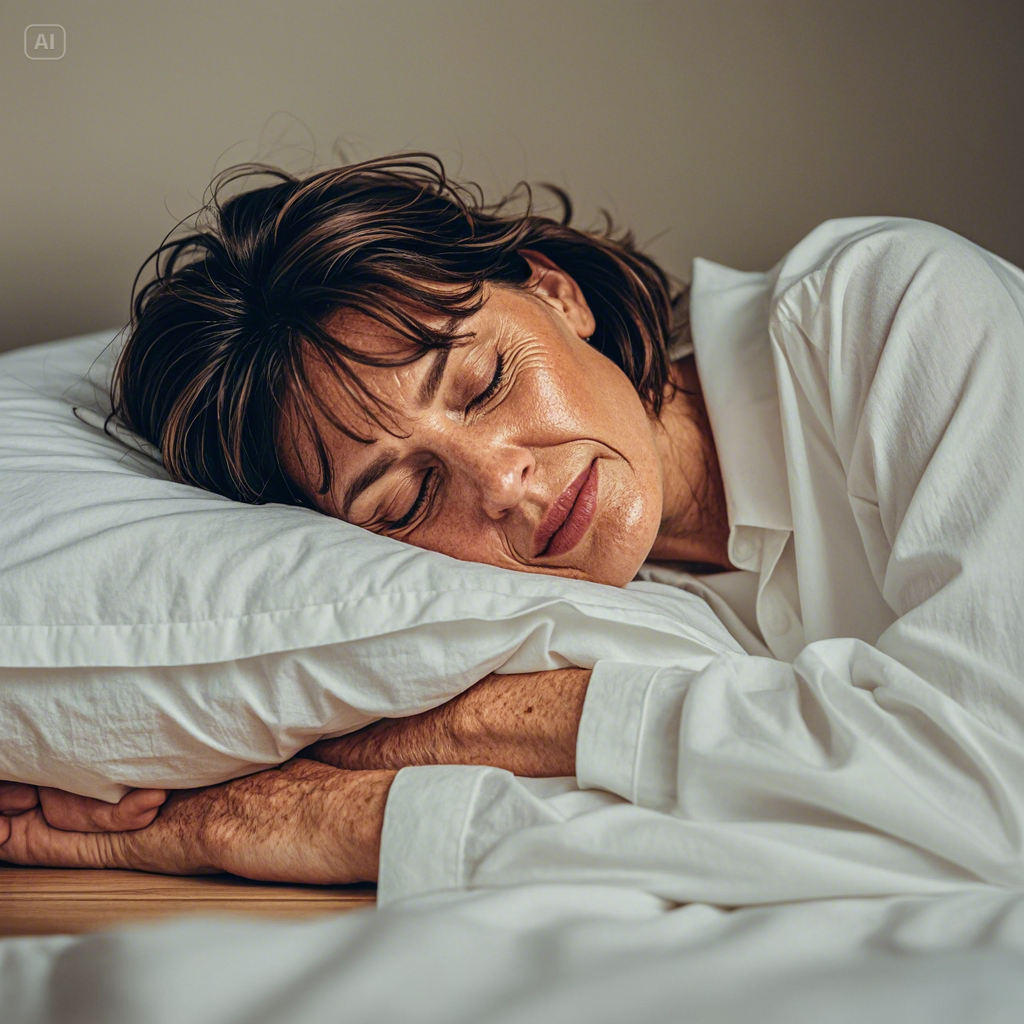
7 Simple Habits to Improve Your Sleep Naturally
Tired but Can’t Sleep? You’re Not Alone
Perimenopause can turn bedtime into a nightly struggle. One moment you’re exhausted, the next, you’re staring at the ceiling wondering if sleep is just a distant memory. Between hot flashes, restless legs, and those 3 AM wake-ups, quality rest can feel impossible. But don’t worry—there’s hope! By making small changes, you can improve your sleep naturally and wake up feeling refreshed.
- Prioritize Gut Health with Probiotics
Did you know your gut and sleep are deeply connected? Research suggests that a healthy gut microbiome can improve melatonin production and reduce nighttime wakefulness. Probiotics help balance gut bacteria, which can:
Reduce inflammation that disrupts sleep.
Support serotonin production (which converts to melatonin).
Improve digestion to prevent discomfort at night.
Affiliate Pick: Look for high-quality probiotics with strains like Lactobacillus and Bifidobacterium. [Explore top probiotic picks here!]
- Practice Mindfulness Before Bed
Racing thoughts and stress are common culprits behind sleepless nights. Mindfulness techniques can help calm the nervous system and prepare the body for rest. Try:
Deep breathing exercises to slow your heart rate.
Progressive muscle relaxation to release tension.
Guided meditation apps designed for better sleep.
- Create a Sleep-Inducing Bedroom Environment
Your bedroom should be a sleep sanctuary. Simple tweaks can make a big difference:
Keep the temperature cool (around 65°F/18°C).
Use blackout curtains to block disruptive light.
Try a white noise machine to drown out background sounds.
Affiliate Pick: Invest in a cooling pillow or weighted blanket for extra comfort. [Find the best sleep accessories here!]
- Stick to a Consistent Sleep Schedule
Your body loves routine. Going to bed and waking up at the same time every day helps regulate your circadian rhythm. To improve consistency:
Avoid long naps during the day.
Set a “wind-down” alarm to signal bedtime preparation.
Get morning sunlight to help reset your body clock.
- Limit Caffeine and Alcohol Before Bed
Caffeine and alcohol can sabotage sleep quality, especially during perimenopause. To sleep better:
Cut off caffeine by early afternoon.
Opt for herbal teas like chamomile or valerian root.
Avoid alcohol close to bedtime—it can disrupt REM sleep.
- Move Your Body (But Not Too Late!)
Regular exercise can enhance sleep, but timing matters. To maximize benefits:
Aim for at least 30 minutes of movement during the day.
Try yoga or stretching in the evening to promote relaxation.
Avoid high-intensity workouts too close to bedtime.
Affiliate Pick: Explore gentle yoga routines designed for better sleep. [Check out top yoga accessories here!]
- Support Your Hormones with Magnesium
Magnesium is known as the “relaxation mineral” for a reason! It helps with:
Reducing muscle cramps and restless legs.
Lowering cortisol (the stress hormone).
Promoting deeper, more restorative sleep.
Affiliate Pick: Magnesium glycinate is the most effective for sleep. [Find the best magnesium supplements here!]
Sleep Better, Feel Better
Perimenopause doesn’t have to mean endless sleepless nights. By incorporating probiotics, mindfulness, and other simple habits, you can transform your sleep naturally.
